blockchain
Latest
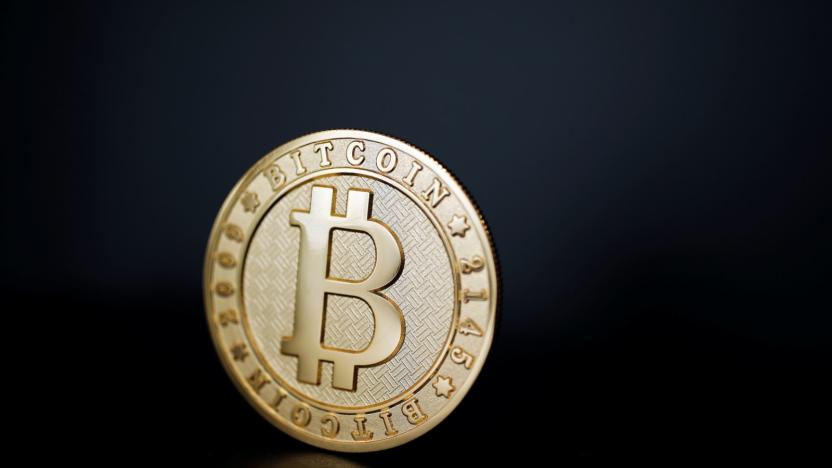
Australia will soon have a blockchain-based stock exchange
The Australian Securities Exchange (ASX) will soon be the first mainstream financial market to adopt blockchain technology.

My $200,000 bitcoin odyssey
This was not what I expected to be doing with my October. But there I was, on a flight to Hong Kong, hoping I would be able to retrieve $200,000 worth of bitcoin from a broken laptop. Four years ago, I was living in Hong Kong when a fellow journalist named Mike* and I decided to invest in bitcoin. I bought four while Mike went in for 40; I spent about $2,000 while he put in $15,000. At the time, it seemed super speculative, but over the years, bitcoin surged and Mike seemed downright prescient. I had since relocated to Los Angeles and had been texting Mike about the 2,000 percent rise in our investment. *Name changed for anonymity. Strangely, I wasn't getting much of a response from him. He had 10 times as many bitcoins as I did -- shouldn't he at least have been excited? Finally, when the price of one bitcoin broke $4,000 this summer, I sent him this message: "You do still have those bitcoins right?" That's when he broke it to me: "Maybe not ..." Here's what happened: At some point in 2013, Mike had rightfully become concerned about security. He initially kept his coins in an exchange called LocalBitcoins. Exchanges are commonly used to buy and sell cryptocurrency, but you shouldn't keep your coins there. The most infamous bitcoin scandal to date was when Mt. Gox, an exchange based in Japan, lost 850,000 of its users' bitcoins. Exchanges can also suddenly close, as some did in China this year when the Chinese government suddenly made them illegal. Any serious cryptocurrency investor will tell you that your coins are best kept in "cold storage" (an offline hardware wallet). That's what I'd done with mine, but Mike hadn't gone that far three years ago when he started thinking about security. Instead, he set up a software wallet. It was a good step, but he would soon learn, it was not foolproof.

Code mistake freezes up to $280 million in digital currency
Imagine if one person's code error deprived you of a pile of money, and there was no guarantee you'd get your funds back. Wouldn't you be hopping mad? That's how many cryptocurrency owners are feeling right now. The digital wallet company Parity is warning users that a large volume of Ethereum funds have effectively been frozen after code contributor devops199 claims to have accidentally deleted the library needed to use multi-signature wallets (those that require more than one signature to move funds) created after July 20th. Devops triggered a long-unpatched bug that turned Parity's wallet contract into a standard multi-signature wallet, making every wallet "suicide" and erase the guiding library code.

Bjork's next album comes with free cryptocurrency
Icelandic music star Bjork is famously experimental with just about everything, so it's no surprise that she's now working on bringing blockchain into the music industry fold. Her people have announced that she's partnering with British startup Blockpool to put the technology at the center of her next album release, not only letting fans buy the record with cryptocurrency, but actually giving them digital cash for doing so.

Russia hopes to launch its own digital currency
Russia has been talking openly about the prospect of creating its own cryptocurrency, and it looks like the country might turn those words into action. Local news outlets report that Communications Minister Nikolay Nikiforov has confirmed plans to launch a state-controlled digital currency. Don't expect to generate virtual rubles with your PC any time soon, though. While it would use blockchain to decentralize control and improve trust, you reportedly can't mine it -- instead, it'd be issued and tracked like conventional money. This would theoretically let Russia boost its internet economy without tying the fate of its currency to other countries or third-party brokers.
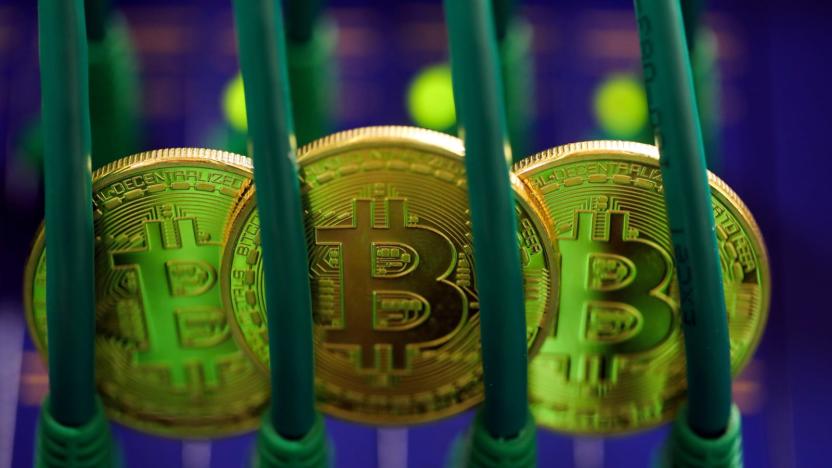
SEC is getting serious about bitcoin fraud and fake news
The US' Securities and Exchange Commission has to deal with a lot more than classic financial crimes these days: it has to worry about everything from insider trading hacks to the integrity of the latest digital currencies. To that end, it's creating a Cyber Unit that will focus its enforcement team on digital offenses. These include hacks, such as attempts to obtain insider info or to compromise trading platforms and accounts, but that's really just the tip of the iceberg.

The world's first blockchain smartphone is in development
Sirin Labs, the company behind the $14,000 Solarin smartphone, is now developing an open-source model that runs on a fee-less blockchain. The Finney -- named in honor of bitcoin pioneer Hal Finney -- will be the only smartphone in the world that's fully secure and safe enough to hold cryptographic coins. Or so says the company, which is launching a crowdsale event this October (date to be confirmed) to support the phone's development.
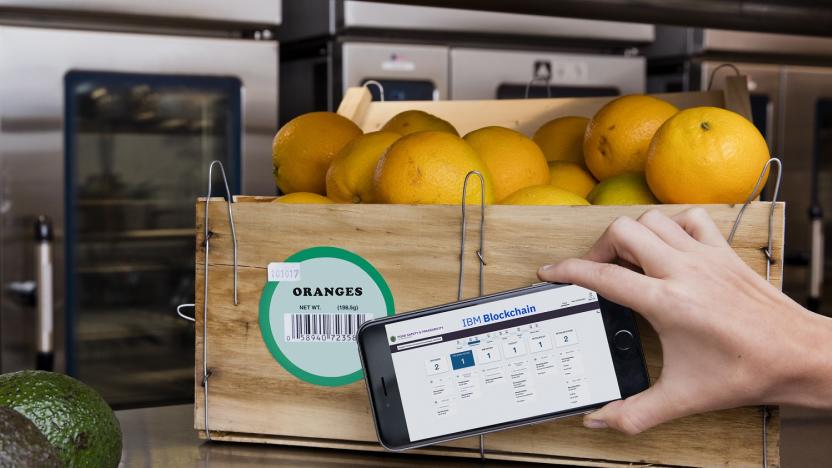
Suppliers and retailers will use blockchain to keep food fresh
IBM has joined with a group of food supply companies and retailers to use the computing company's blockchain tech to keep food fresh. Currently, it can take up to two weeks to track down the source of contaminated foodstuffs. But just like tracking cryptocurrency transactions all over the world, this consortium will harness IBM's enterprise blockchain services to give its members access to a constantly-updating ledger of food, from source to store.
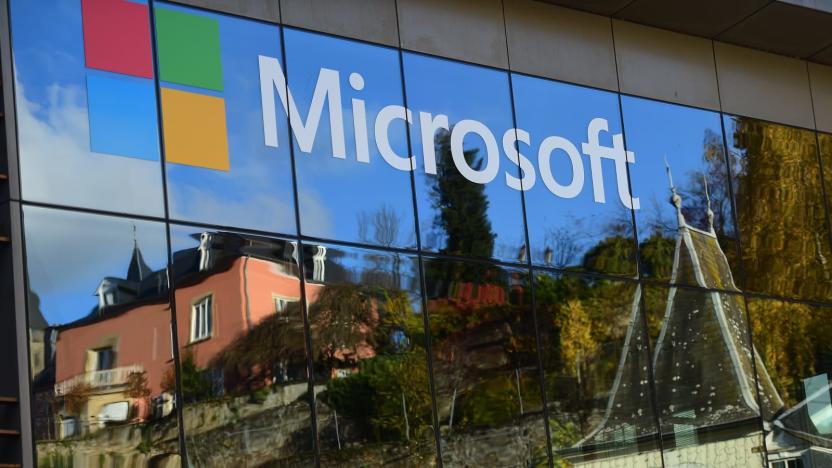
Microsoft and Intel want Bitcoin tech in your workplace
Blockchain is practically tailor-made for business, and not just because it's a cornerstone of Bitcoin. Its decentralized, speedy approach to secure transactions is more convenient for tracking cargo around the world or providing digital IDs to those who'd otherwise have nothing. And Microsoft knows it -- it's partnering with Intel to introduce a framework, Coco, that promises to make blockchain accessible to virtually any large business where it might help. It draws on Intel's Software Guard Extensions to provide blockchain's distributed tech with speed (up to 1,600 transactions per second) and security that scales to just about any kind of business with relative ease. You don't need to spend as much time crafting a custom blockchain system, or pay through the nose for computing power as your demands grow.

Sony will use blockchain to beef up school cybersecurity
The folks at Sony Education are worried that some schlubby kid that's gonna fail gym could hack their school and change their grade to a pass. It's why the company is teaming up with IBM to use blockchain to create a secure academic platform for storing records. The idea is that every scrap of data about your kids' schooling goes into a record that can then be stored securely. No kid, you gotta learn to climb that rope or else you can kiss that scholarship to Harvard goodbye.
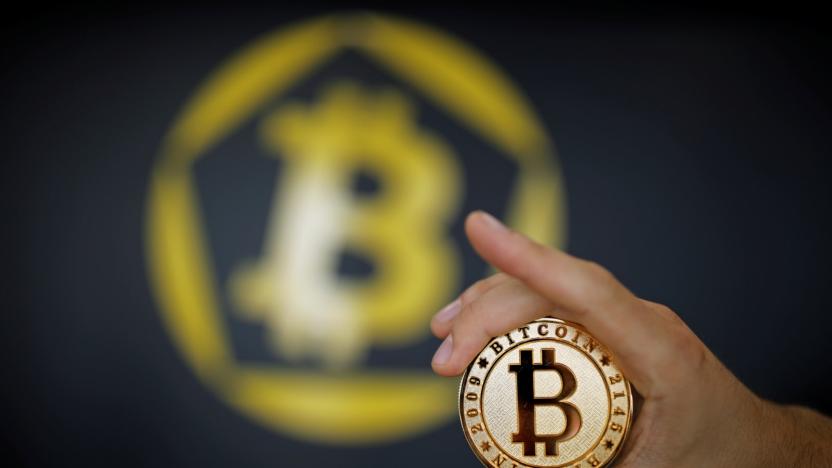
Bitcoin feud splits the currency in two
This morning, bitcoin split into two currencies -- the original and Bitcoin Cash. The hard forking, as it's known, resulted from heated debate over the cryptocurrency's future, since the aging tech behind blockchain has prevented easy scaling. While a new code upgrade called SegWit2x was introduced last week as a compromise, dissenters still decided to start backing Bitcoin Cash and fork off in their own direction. The community anxiously waited for financial fallout after the schism, but aside from a temporary 7 percent drop in bitcoin value this morning, the split seems to have avoided disaster. Whether Bitcoin Cash sticks around is another question.

Facebook pledges funding to non-profit election security group
Just last week, Harvard Kennedy School's Belfer Center launched Defending Digital Democracy, an across-the-aisles bipartisan effort to find ways to protect against election hacking. The group includes campaign managers from Hillary Clinton and Mitt Romney's presidential campaigns as well Google and Facebook security staffers. A new report on Reuters says that Facebook will also provide an initial funding of $500,000 to the nonprofit.

Bitcoin's long-overdue upgrade is all things to all people
Bitcoin backers have welcomed a code upgrade that will improve the virtual currency's usage and scalability. The upgrade, known as SegWit2x, represents a compromise between two competing schools of thought on Bitcoin's future. There had been some anxiety that the community would not get behind the new standard, but Bloomberg reports that 93 percent of miners "locked in support for BIP91, the first necessary step in implementing SegWit2x."

Clinton, Romney campaign managers unite to fight election hacking
The threat of hacks disrupting US elections is very real, and enough people are concerned that it's creating some strange bedfellows. Harvard Kennedy School's Belfer Center has launched Defending Digital Democracy, a bipartisan effort to offer technology, strategies and other tools that can protect against election-oriented cyberattacks. And when they say it's an across-the-aisle effort, they mean it. Campaign managers for former presidential candidates Hillary Clinton and Mitt Romney will help lead the group, as will Facebook's security chief, Google's info security director and the co-founder of security firm CrowdStrike. The head of the group is Eric Rosenbach, who was Chief of Staff to recent Defense Secretary Ash Carter.
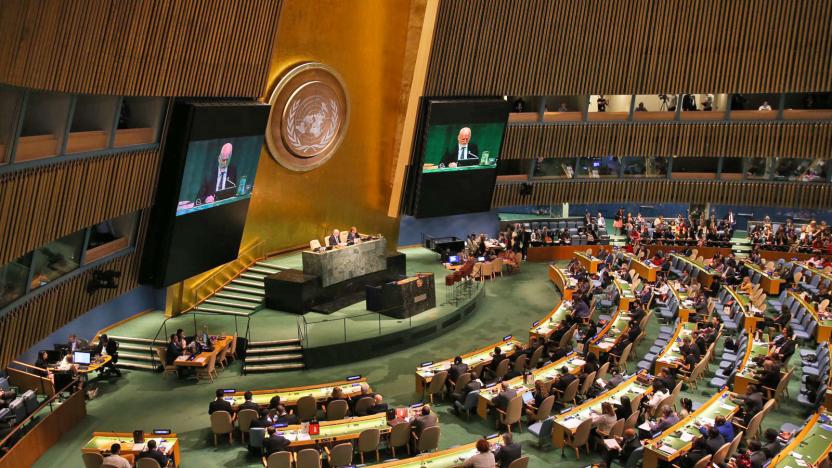
Microsoft and the UN to provide digital IDs for undocumented people
It's difficult to live without identification. In many cases, you're shut out of banking, health care, voting rights and other basics. Microsoft and partners might just give those many undocumented people (1.1 billion of them, in fact) a shot at the identity they need, though. It's working with Accenture and Avanade on a United Nations-backed digital ID effort that would offer legal recognition to those who'd otherwise be lost to recordkeepers. The prototype uses blockchain technology to give people a trustworthy ID that can follow them anywhere, but still respects privacy and security.
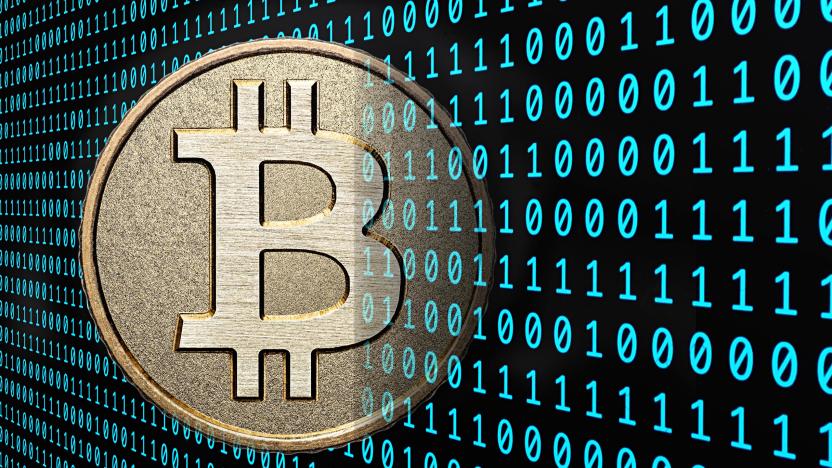
A major investment company is taking bitcoin very seriously
Many predicted that the world would soon lose interest in bitcoin. Yet, eight years after its inception, its surprisingly robust Blockchain tech and prominence on the darkweb has led to the cryptocurrency trading at an all time high. This success hasn't gone unnoticed in the financial world, and now bitcoin is being integrated into one of America's largest brokerage company -- Fidelity Investments.
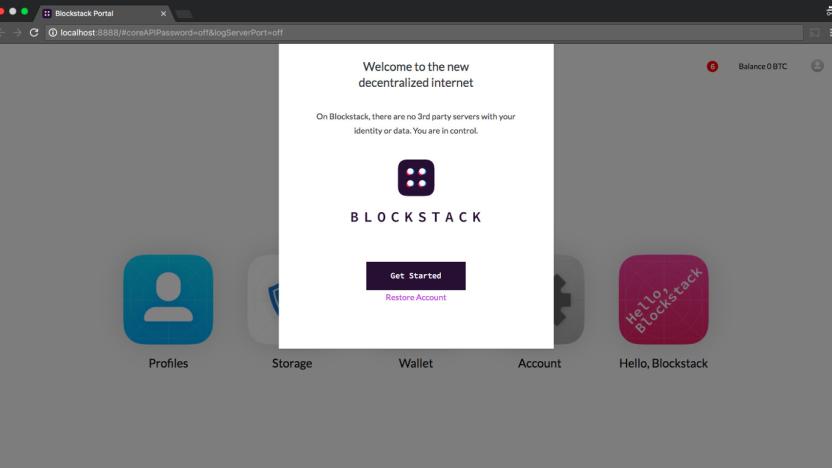
Blockstack's decentralized internet browser uses bitcoin tech
Blockchains used to be exclusively associated with bitcoins until other industries saw how useful the digital distributed ledger can be. Walmart used it to identify expired food that needed to be pulled from its shelves, and at least one shipping company used it to track cargo as it made its way across the ocean. Now a startup called Blockstack is relying on the technology to power its decentralized browser that runs without existing infrastructure. It's similar to Bittorrent's Project Maelstrom browser in that it loads websites from peers instead of from servers, which can protect your privacy and safety online.

Spotify's latest move shows it's trying to get royalties right
Spotify has struggled with unpaid royalties recently, though it's promised to fix things to help support frustrated artists. The company recently limited its free streaming option to build trust with music creators. In addition, Spotify just acquired New York startup Mediachain, which created a decentralized, bitcoin-style secure database that manages ownership information for creative media on the internet.

Shipping giant tests IBM's blockchain tech to track cargo
Maersk Line, known as the world's largest container shipping company, has teamed up with IBM to start using blockchain to track its cargo. From the time the tech titan opened its Watson-powered blockchain service to enterprise customers last year, it has already signed up over 400 clients, including Walmart. It helps companies use blockchain -- a digital leader that logs transactions that can't be modified later -- in different ways, not just for financial transactions. For Maersk, it's to give buyers, sellers and customs officials a way to keep track of the goods it hauls as they make their way across the globe. Everybody involved can check where the shipment is at any point.
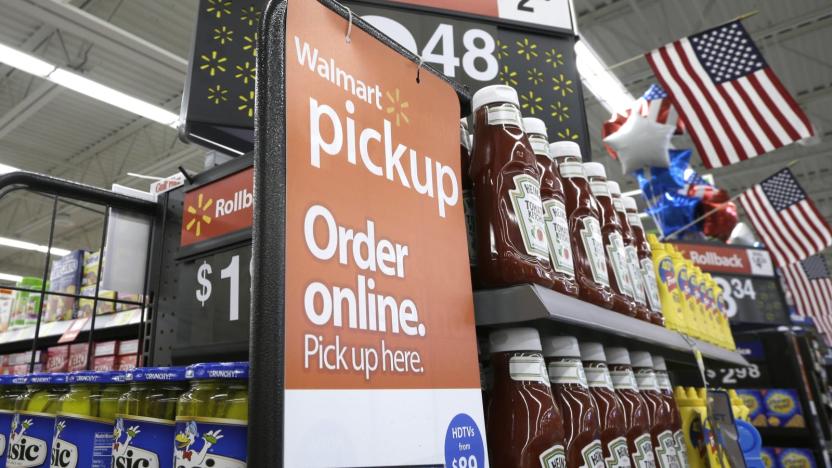
Walmart tries using blockchain to take unsafe food off shelves
It's scary when stores have to pull unsafe food. It can take days to pinpoint the batch or supplier that caused the problem, which could lead to people getting sick... or at best, force the store to yank more products than necessary. Walmart believes technology could offer a better way. It's trying out blockchain's distributed ledger as a means of identifying the sources of poisonous food. Digital receipts for the food identify everyone in the supply chain, ranging from the original location through to the inspectors and shipping companies. If everything passing through a specific warehouse is making people ill, Walmart can identify that troublesome food and yank it within minutes -- and there's no easy way for unscrupulous suppliers to alter the info.








